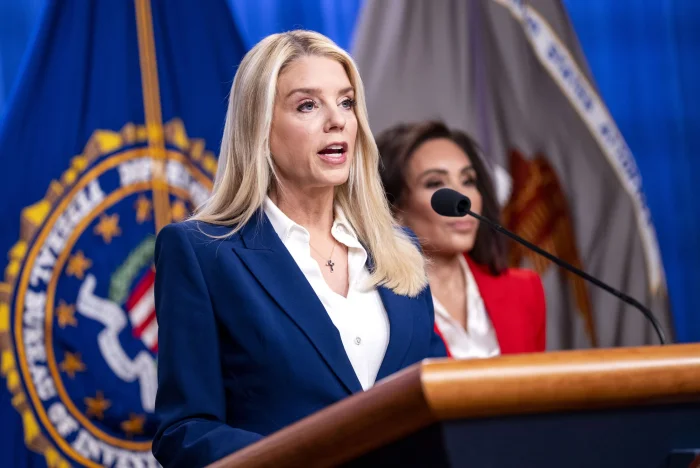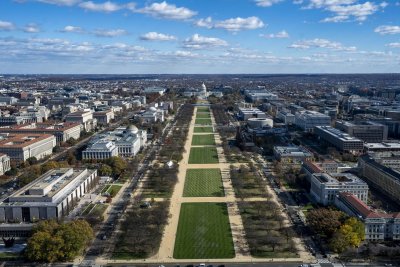Feb. 6 (UPI) — A group of prominent Nigerian religious and traditional leaders visited Washington, D.C. this week seeking understanding and support for addressing their country’s critical security situation as a result of ethnic and religious based violence.
The group comprised three Christian leaders, both Catholic and Protestant, and three Muslim imams, one of whom is also a traditional ruler in Zamfara state in northwestern Nigeria.
Last Wednesday they briefed international stakeholders on the current state of the security crisis in Nigeria and discussed interfaith action priorities with potential international partners.
Ambassador Sam Brownback, former U.S. Ambassador-at-Large for International Religious Freedom, and chairman of the 2026 International Religious Freedom Summit underscored the urgency of the situation. He told the working group, “If this moment is not wisely used, you could lose the country. I fear this is the road this is starting down without sustainable solutions. You don’t have a lot of time.”
The virtual disappearance of state sovereignty in certain rule areas where armed groups extort taxes, requisition harvests, and hijack local government was a central issue of concern. In addition, estimates of internally displaced people, or IDPs, as a result of armed conflict range from 3.5 to 8 million. Most IDPs are forced to live in hastily assembled refugee camps.
“This should not be possible in 2026,” said Cardinal John Onyaikan, one of the visiting faith leaders.
Nigeria’s fragile security situation had directly affected members of the visiting group. Alhaji Hassan Attihuru, the Emir of Bungudu, in Zamfara state, challenged the idea that kidnappings and killings were targeted on religious grounds. He himself had been kidnapped by members of his own Fulani people who were fellow Muslims.
Rev. John Hayab is a Baptist minister in Kaduna State, and the country Director of Global Peace Foundation Nigeria. Students at a school his church ran were kidnapped and held for ransom. His son was one of a small group that managed to escape into the nearby forest.
The group’s visit to America was a follow-up to the Abuja High-Level Interfaith Dialogue, convened by the Global Peace Foundation Nigeria last December. The meeting produced a blunt statement challenging the federal government to do more to combat the violence.
It also established a Joint Interfaith Advocacy Committee on Freedom of Religion and Belief that agreed to increase peace messaging to affected communities and track progress on reducing incidents of violence.
Attending the dialogue in D.C. from the American side were representatives of the U.S. Commission on International Religious Freedom, Global Impact, Religious Freedom Institute, Alliance Defending Freedom, the U.S. State Department, and American University.
Cardinal Onyaikan told those present, “Our problems are self-inflicted so we need our own solutions. But no nation is an island, so we also need support.”
The dialogue was co-sponsored by the Global Peace Foundation, Religious Freedom Institute, and Pepperdine University.
Summing up the meeting, Fr. Canice Enyiaka, Global Peace Foundation Director of African Peace Initiatives said, “Bringing the experience and insights of faith leaders here to Washington is very important because of the seriousness of the current crisis. Religious faith is a powerful force in Nigeria and I am grateful for all the organizations supporting religious freedom and human rights represented here.”
Yesterday, the Nigerian group met with Rep. Riley Moore (R-WV)who has been vocal about the violence suffered by Christians in Nigeria. He is said to be preparing a report on the security threats to Nigerian Christians for President Trump with options for how the U.S. government should respond.
The visiting group briefed him on the complexities of the situation and the role that interfaith cooperation at the leadership level can play in addressing it. Moore agreed to continue to receive their input after their return to Nigeria.



